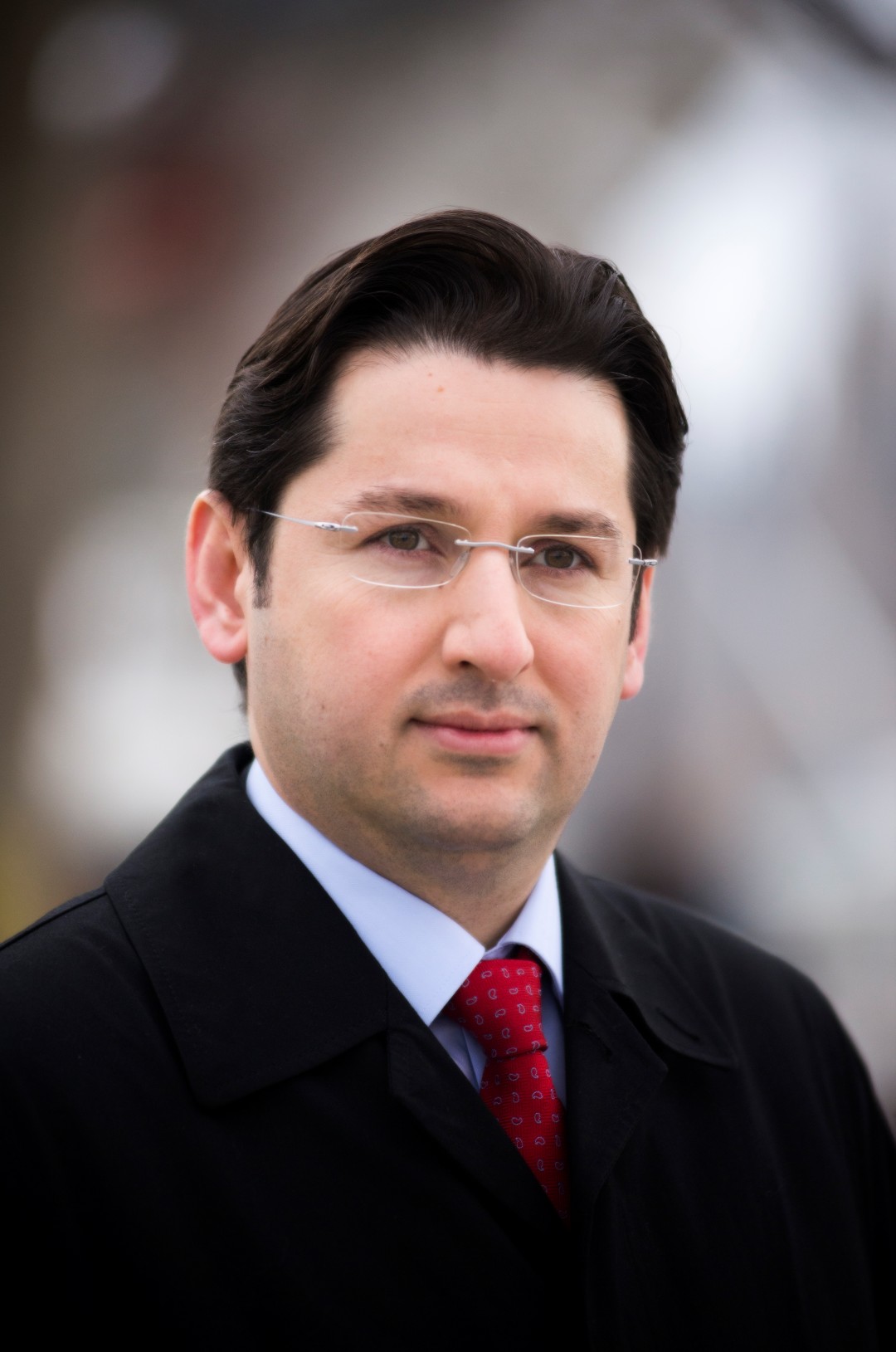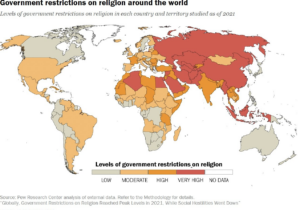The US Department of State’s annual report on international religious freedom, released on May 12, documents the ongoing erosion of freedom of religion or belief in Turkey. The report echoes the concerns the US Commission on International Religious Freedom (USCIRF) raised three weeks earlier in its annual report. Foggy Bottom, however, will likely continue its tradition of giving Ankara a free pass by ignoring USCIRF’s recurrent recommendation since 2009 for the US government to include Turkey on the State Department’s “Special Watch List” for “engaging in or tolerating severe violations of religious freedom.” Given the Turkish government’s particularly troubling conduct in 2020, Secretary of State Antony Blinken should deliver an honest message about the alarming trajectory of religious freedoms in Turkey.
Both the State Department and USCIRF issue their respective annual reports in compliance with the International Religious Freedom Act (IRFA) of 1998. The law established the Office of International Religious Freedom at the State Department, headed by an ambassador-at-large for international religious freedom. The statute also established USCIRF as an independent and bipartisan federal government entity. While the State Department submitted its first annual report to Congress on international religious freedom in September 2009, USCIRF has been issuing annual reports since May 2000. In preparing its annual report, the State Department is required to take USCIRF’s report and recommendations into account. The secretary of state has the option of designating a grave offender as a “Country of Particular Concern”—a category reserved for the governments with the worst records, whose violations are “systematic, ongoing, and egregious.” Such a designation has the potential to trigger IRFA-based sanctions.
Turkey is the only country among NATO’s 30 members—and one of the two, alongside Azerbaijan, among the Council of Europe’s 47 members—that USCIRF has singled out as deserving a “Special Watch List” designation this year. This is a label for second-tier countries that fall short of a “Country of Particular Concern” designation. Although Ankara’s 2016 imprisonment of US pastor Andrew Brunson on trumped-up charges for almost two years has prompted discussions in Washington about Turkey’s designation as a “Country of Particular Concern,” Russia this year is the only Council of Europe member that USCIRF has put into that category, alongside 13 other offenders, including China, Iran, and North Korea.
In their latest reports, the State Department and USCIRF renewed their criticism of persistent problems, such as Ankara’s refusal to open the Greek Orthodox Halki Seminary, attacks targeting places of worship, and rampant anti-Semitic hate speech, among others. Yet there were also new concerns, including the Turkish government’s decision to convert Hagia Sophia into a mosque and the accelerated pace of deportations targeting Protestant faith leaders for posing a purported “national security threat.”
The conversion of Hagia Sophia on July 10, 2020, and the accompanying rhetoric by Turkish officials mark a particularly troubling moment in Turkey’s downward trajectory regarding minority rights and religious freedoms. In his televised address marking the occasion, Turkish President Recep Tayyip Erdoğan said that Hagia Sophia’s conversion would gratify “the spirit of conquest” of Mehmet II, the Ottoman sultan who captured Constantinople from the Byzantines in 1453. The next day, Erdoğan’s ultranationalist coalition partner Devlet Bahçeli echoed the Turkish president by proclaiming that the course of the Turco-Muslim conquest, “which has been going on for 567 years, has entered a new phase.” He also claimed that the legal basis for converting Hagia Sophia rests on “the right of the sword” resulting from the Ottoman conquest.
Turkey’s pro-government news site A Haber went so far as to publish a guide—entitled “What does the right of the sword mean?” Two weeks later, Ali Erbaş, head of Turkey’s Directorate of Religious Affairs, gave the first Friday sermon at Hagia Sophia with a sword at hand, symbolizing the tradition of conquest.
Turkish officials’ attacks against Turkish citizens who opposed Hagia Sophia’s conversion were equally troubling. The deputy leader of Erdoğan’s Justice and Development Party accused Turkish citizens who oppose the conversion of acting like “the Byzantines among us,” insinuating they are traitors. Similarly, Bahçeli referred to the move’s critics as “remnants of the Byzantines” and the “clandestine Byzantine lobby’s Westophile native collaborators.”
Such attacks targeting Muslims and non-Muslims alike as fifth columns is a frequently deployed trope that aims to relegate Turkey’s religious minorities to the status of subjects of a Muslim-dominated polity, silence dissident voices, and further undermine equal citizenship. Elpidophoros, the archbishop of the Greek Orthodox Archdiocese of America—and a native of Istanbul—warned that “a mentality of the conqueror, and claiming conqueror’s rights … changes the relationship of the state to its citizens.” He added, “I am a Turkish citizen myself, and I don’t want the state to have the mindset of the conqueror, because I am not a conquered minority. I want to feel in my own country as an equal citizen.”
The Turkish president’s name-calling extended beyond Hagia Sophia’s conversion. Erdoğan insulted Turkey’s Christians and Jews in April by publicly using the slur “gavur” (infidel), a pejorative designation for non-Muslims, to criticize his political opposition. This followed his May 2020 use of another slur, “the leftovers of the sword”—a pejorative term that denotes surviving members of ethnic and religious minorities following mass killings—to attack his political opponents again. Erdoğan’s ultranationalist partner Bahçeli used the same term to highlight a journalist’s religious minority family roots in 2017.
The Turkish government’s targeting of Protestant faith leaders, which picked up steam following Turkey’s failed coup attempt in 2016, became another major concern in 2020. To deport Protestant faith leaders, Ankara has intensified its use of the N-82 code—designating foreign nationals as a national security threat—to deny them entry or residence permits. Turkish authorities not only expelled 30 Protestants in 2020 alone but also started deporting foreign spouses of Turkish Protestant clergy, hoping the move would also drive out Turkish Protestants, who do not want the state to separate them from their loved ones.
These alarming developments show that 2020 was a particularly alarming year for religious freedoms in Turkey. Although over the last two decades the State Department has preferred back-channel talks with Ankara over publicly shaming a NATO member state by slapping it with a “Special Watch List” designation, this strategy has not prevented Turkey from backsliding. This year, Secretary Blinken should consider delivering an honest message about the Erdoğan government’s alarming religious freedom track record in the form of a “Special Watch List” designation rather than continuing a tradition of appeasement that has failed to deliver any results.








 Live in the DC area? Sign-up for Providence's in-person events list!
Live in the DC area? Sign-up for Providence's in-person events list!